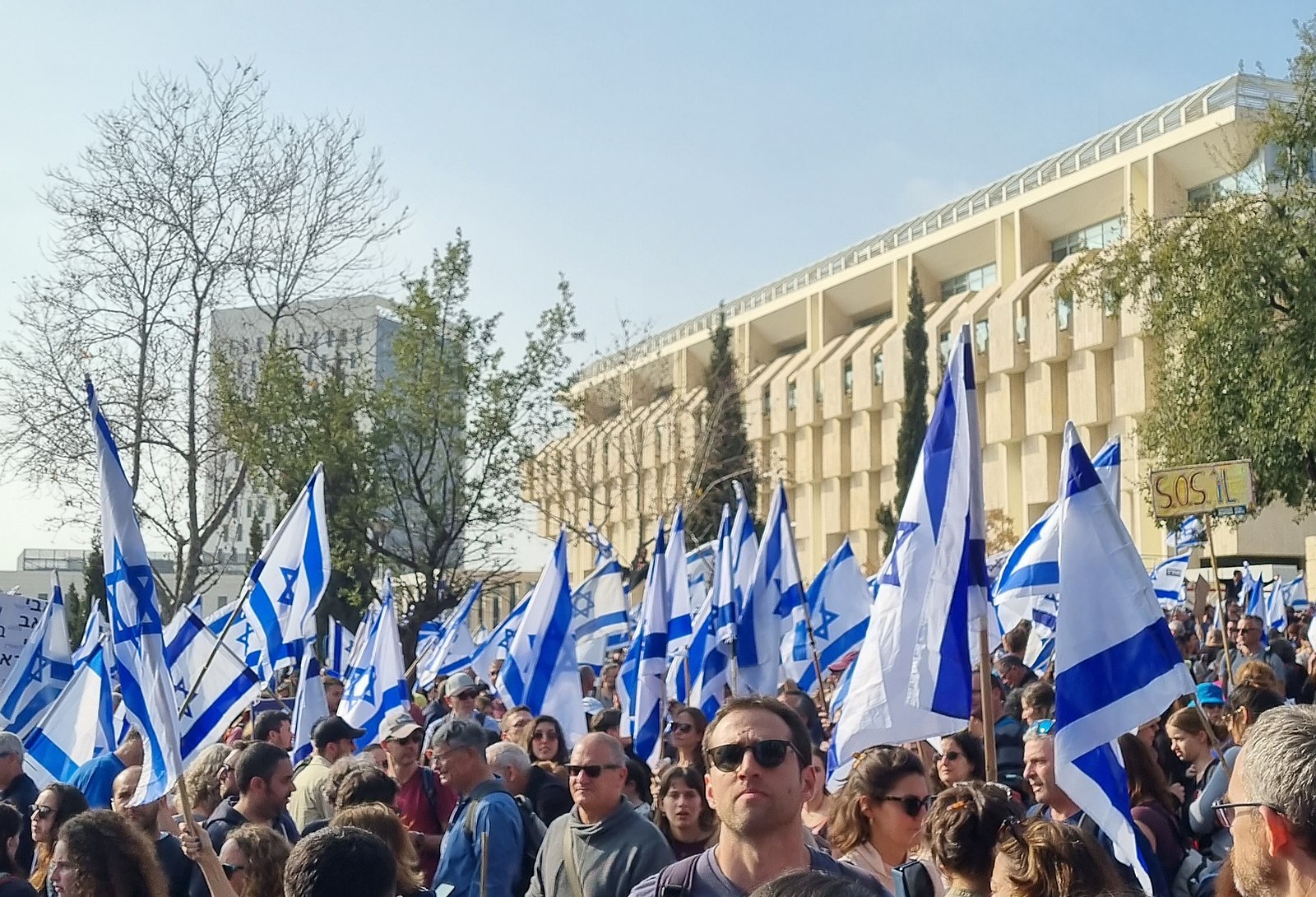Endure and flourish, or stagnate and disappear
By Jacob Sagers | March 28, 2023

Demonstrators protesting in 2023 against Prime Minister Netanyahu
Disunity in the military limits Israel’s capacity to pursue their interests internationally. The calculations Israel makes to position themselves on a global scale, or geopolitical codes, are constructed by military power, among other means. The proposed overhauls come during a time of heightened tensions with Gaza and Palestine. Israel generally exerts their influence over their neighbors by controlling their territorial checkpoints and governments. This plays along with counteracting their Arab neighbors. Without military projection, the country is limited in achieving their geopolitical code. The issue becomes multi-faceted when the soldiers’ and protestors’, or non-state actors, roles are accounted as they attempt to implement their own agenda. They hope to stop the Netanyahu’s conservative Likud party from overhauls and amplifying their power in government.
The social movement is not the only non-state actor involved. Ultra-Orthodox Jews, or Haredi Jews, are in support of the reforms. They are among Netanyahu’s strongest supporters and hope to gain exemptions from military service due to their religious beliefs. Tensions are increasing as protestors threatened to storm Ultra-Orthodox communities – portraying the relations non-state actors have with each other. The conflict is not new, Ultra-Orthodox Jews hold high levels of poverty because of religious barriers from working in the Israeli economy and children are exempt from Israeli public education. Jewish identity is a factor as Netanyahu attempts to draw on Zionism from the increasing power of the Orthodox group. The protest’s future creates a new problem. Will Israeli society fragment like their government, and will the military maintain Israel’s interests and remain loyal?
Picture Credit: Photo distributed under the Creative Commons Attribution-Share Alike 3.0 Unported license. Source

